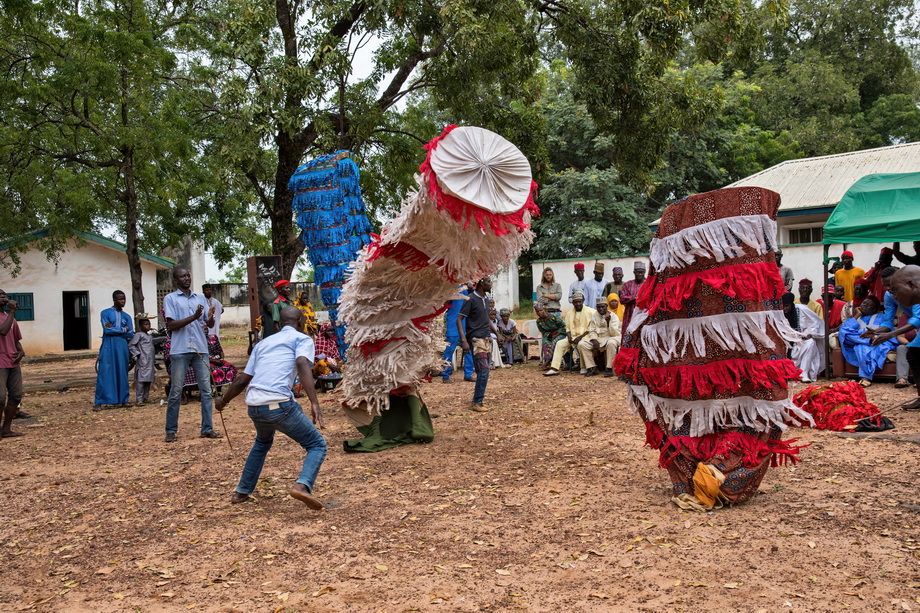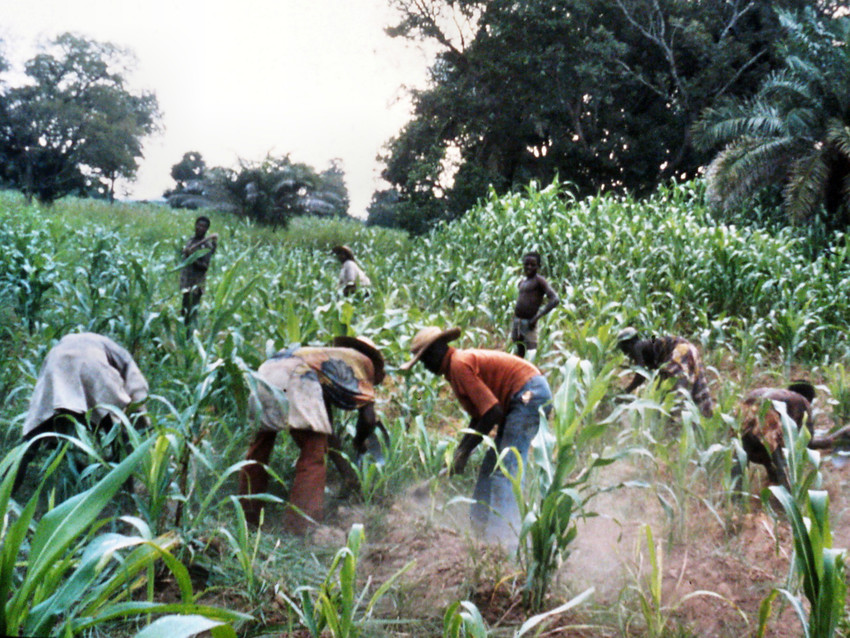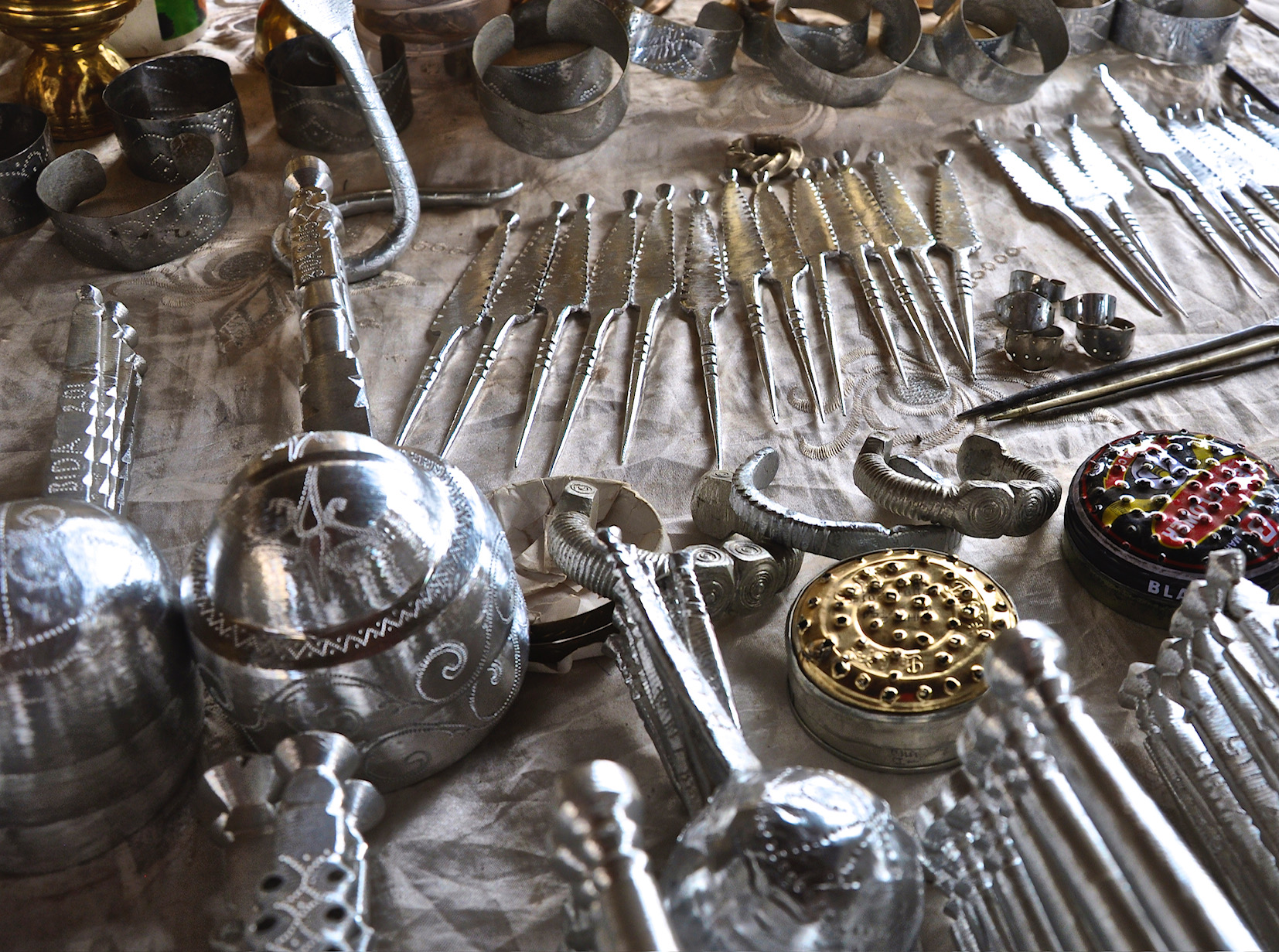
The Nupe culture is a vibrant and enduring aspect of Nigeria's rich tapestry of ethnic groups. Rooted in a long history that predates the arrival of Islam, it has evolved through centuries of internal development and interaction with neighboring communities.
Language
The Nupe people speak the Nupe language, which belongs to the Nupoid group within the Benue-Congo branch of the Niger-Congo language family. It is closely related to other languages like Gbari and Kakanda. There are several dialects of Nupe, with Nupe Central being the basis for the written language, and Nupe Tako (Bassa-Nge) being another prominent dialect. The language is rich in proverbs (eganmagan), parables (egankogi), and riddles (ecingi), which serve as important vehicles for teaching morality, wisdom, and the norms of Nupe society.
Social Structure and Governance
Traditionally, Nupe society is structured around a hierarchy with the Etsu Nupe as the paramount traditional ruler, overseeing various chiefs and village heads. The system of three ruling houses (Usman Zaki, Masaba, Umaru Majigi) in the Bida Emirate ensures an orderly succession to the throne. Family ties are strong, and community cooperation is highly valued. Polygyny was common both before and after the introduction of Islam.
Religion
While most Nupe people today are Muslims, the influence of traditional Nupe religion is still evident in some practices and beliefs. Before Islam, the Nupe worshipped a sky god and spirits associated with natural objects and ancestral spirits. Even with the predominance of Islam, some older rituals and beliefs regarding the spirit world may persist, often subtly integrated into daily life. Christianity is also practiced by a smaller proportion of the population in certain communities.
Economy and Occupations

The Nupe are primarily an agrarian population, with their economy and social life deeply connected to agriculture. They are active farmers, cultivating crops such as:
- Major crops: Rice, sorghum, sugarcane, millet, melon, vegetables, and yam.
- Secondary crops: Cassava, maize, and sweet potatoes.
Their location in the fertile floodplains of the Niger and Kaduna rivers makes them particularly adept at rice cultivation. Fishing is also a significant occupation for those in riverside areas, with women actively involved in processing and selling fish.
Beyond agriculture, the Nupe are renowned for their cottage industries and crafts, which are a major source of income and cultural expression.

Arts and Crafts
The Nupe people are celebrated for their diverse and intricate craftsmanship, often considered a central part of Nigerian art and culture. Their art is often abstract, with less emphasis on ceremonial masks or figures compared to some other Nigerian ethnic groups. Key craft industries include:
- Metalwork: Highly skilled blacksmiths forge and cast objects like knives, swords, spears, axes, and jewelry from iron, copper, brass, silver, and gold. They use techniques like engraving, inlaying, and filigree. Bida is particularly famous for its **brass and copper work**, with elaborate trays and ornaments.
- Textile: Nupe weavers and dyers produce a variety of fabrics from cotton, silk, and wool. They utilize natural dyes like indigo, henna, and kola, and employ techniques such as embroidery, appliqué, and tie-dye to create vibrant patterns for clothing, bedding, and ceremonial banners.
- Pottery: Nupe women potters are known for their fine terracotta works, creating bowls, plates, cups, jars, and figurines. Their pottery often features highly decorated surfaces with glazing, painting, and carving.
- Woodcarving: Nupe woodcarving is often described as "art for art's sake," focusing on aesthetic beauty rather than purely ritualistic use. They carve stools (often with distinctive incised patterns), doors (embellished with reliefs of animals, objects, and symbols), and other architectural supports.
- Glassmaking and Beadwork: The Nupe also engage in glassmaking and beadwork, creating beautiful ornaments.
- Leatherwork: They produce leather goods such as bags, shoes, hats, and belts, decorated with intricate designs and beads.
- Canoe Building: Essential for their riverine lifestyle, the Nupe build canoes from large tree trunks for fishing, trade, and transportation.
- Grass Weaving: Women are particularly active in weaving grass into mats, baskets, hats, and fans, often dyed with natural colors and decorated with beads, shells, and leather.
Cuisine
Nupe cuisine is largely based on their agricultural produce, with rice, yam, and guinea corn forming staples. Fish, particularly catfish, is very common in their dishes due to their proximity to rivers.
- Staple Dishes: Dishes made from rice, millet, sorghum, or maize, often consumed with various soups. "Jekun" (leftover food from previous supper, cooked with fresh ingredients) is a unique traditional dish.
- Snacks: Popular snacks include "akara" (bean cake), "masa" (sorghum cake), "mashe" (early millet cake), "Dankuwa" (confectionery from fried groundnut and maize), and "Kuli-Kuli" (fried groundnut paste after oil extraction).
- Soups: Various soups are prepared to accompany staple dishes, often featuring local ingredients and dried fish.
Marriage Customs
Traditional Nupe marriage customs are elaborate and hold significant cultural meaning.
- Arrangement: Marriages can be arranged by family heads or initiated with the consent of the prospective bride and groom.
- Bride Price: Payment of a bride price by the groom is customary.
- "Yawo Rufadan" (Bridal Bath): A significant cleansing rite performed by elderly women early in the morning before the wedding. It symbolizes the end of spinsterhood and the beginning of married life. This rite is performed only once in a woman's lifetime.
- "Yawo Wadzhun" (Bridal Journey): Historically, a multi-day celebration culminating in the bride's journey to the groom's house.
- Virginity Test ("Yawo Zhunyeli"): Traditionally, a white cloth was spread on the bed for the consummation of the marriage. A bloodstain was a source of joy for the bride's family, symbolizing her virginity.
- Polygyny: Remains common.
- Patrilocal Residence: Post-marital residence is typically patrilocal, meaning the wife moves to the husband's family compound.
- Procreation: Barrenness is regarded as a misfortune, and procreation is central to the meaning of marriage.
Festivals
The Nupe celebrate several festivals that showcase their rich heritage:
- Bariki Festival of Bida: A grand royal and cultural celebration held annually in Bida, usually aligning with Islamic festivities like Eid-el-Fitr or Eid-el-Kabir. It honors the Etsu Nupe and features a majestic Royal Cavalry Procession with richly adorned horses, traditional music, warrior displays, and performances by masquerades like Gboya and Gani, believed to represent ancestral spirits. It is a time for renewing allegiance, thanksgiving, and celebrating collective heritage.
- Patigi Regata: A colorful canoe festival held on the River Niger in Patigi, Kwara State, which also has a significant Nupe population. It highlights the Nupe's historical connection to the river and their skills in canoe building and navigation.
- Nupe Day: An annual cultural festival that aims to promote cultural revival and unity among the Nupe people. It often includes prayers, public discussions on Nupe history and culture, and awards to encourage agriculture and development.
The Nupe culture is a testament to the resilience and adaptability of a people with a profound history, continuing to thrive and evolve while maintaining a strong sense of identity.